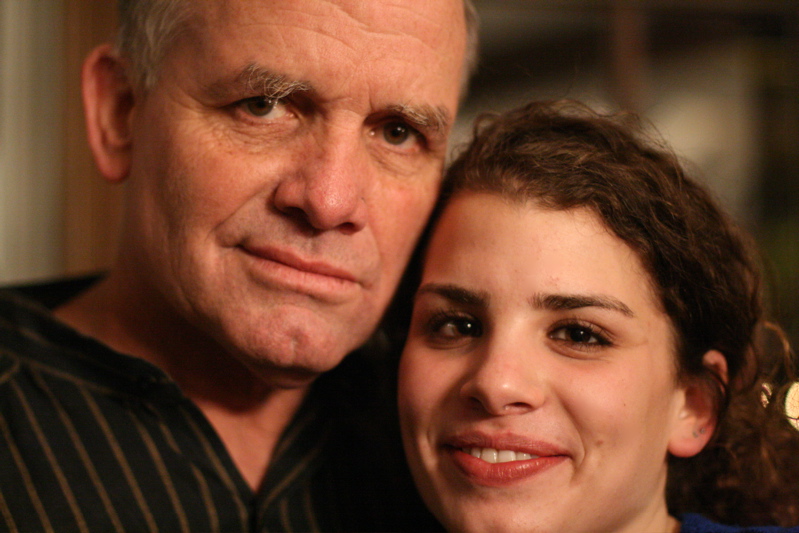What to Do When You Don't Get Along with Your Adult Child
Very little is known about parent-child relationships in later life. There seems to be a gap in both research and theory between the focus on parenting children who are not yet adults and the focus on relationships between elderly parents and their now adult children who may children of their own. Although these relationships do exist, they are sometimes very hard.
It's hard on both sides. Parents are struggling because they are losing their child that they are used to having control of.  They struggle with "the empty nest syndrome," and getting used to doing things for themselves and not their children. And parents may struggle because they continue to want what they feel is best for their children, and they don’t want their children to make the same mistakes. Children are struggling because they are now at a scary time of life—first-time choices and life paths are being decided by these "adults," but they don't have much experience making these adult decisions.
They struggle with "the empty nest syndrome," and getting used to doing things for themselves and not their children. And parents may struggle because they continue to want what they feel is best for their children, and they don’t want their children to make the same mistakes. Children are struggling because they are now at a scary time of life—first-time choices and life paths are being decided by these "adults," but they don't have much experience making these adult decisions.
There are times when they, too, just want their "mommy" and "daddy" but they are struggling to make it on their own. During this transition, boundaries are loose and the “rules” are much less clear. Below are suggestions of both actions you can take and things to avoid so you can maintain a healthy, rewarding relationship with your adult children.
What Not To Do
1. Don't try to dominate or manipulate.
Although your children are new at this "adult stuff," they need a chance to do it on their own to become productive people. If you want them to respect you, you need to give them that same respect.
2. Don't give unsolicited advice or meddle.
Wait until your children ask for your help. They are adults and should be treated like you would any other adult. If you are open they will ask questions and you will still feel needed.
3. Don't have unrealistic expectations of your children.
Don't expect them to be as good as you are at things. Remember, you had years of practice to become the expert mother/father you are. Instead, encourage them and love them for all that they are trying and doing.
4. Don't reproach your child for things that happened in the past.
Just because he messed up once doesn't mean he'll do it again. In fact, he probably did learn a lesson the last time and will be better off for it. Remember that you made mistakes, too.
5. Don't complain habitually
No one wants to talk to anyone who complains all the time, especially your child. She is going through a trying time right now and you should be as much a support to her as she is to you, or more. Try to remember how the first 10 years of adulthood were for you—they are full of decisions and trial with new jobs, new marriages, new babies, college, etc.
6. Don't criticize your child's lifestyle or parenting style.
Respect his differences just like you would any one of your friends. Remember that he is raising his children in a different generation and that there is more than one way to raise good kids or to be successful.
7. Don't overuse one child's help and emotional support.
Your child will become tired of talking to you if all she is to you is your emotional support. It is a two-way thing.
What To Do
1. Be helpful.
You are more experienced than they are, so help them when your help is wanted. Be supportive and helpful in this trying time in their lives and they will appreciate it so much. Sometimes just listening is the most helpful thing you can do.
2. Treat your child as an equal.
Now that your child is older and is having more life experiences it will be fun to transition your relationship from that of mother/father to friend and equal. You will always be your child's parent but now you can also be their friend.
3. Take an interest in your child's and grandchildren's lives but retain your own interests, too.
This will make you happier and more pleasant to be around if you are active and doing things you love.
4. Try to solve your own problems.
You will feel more helpful if you can help your children with their problems more than you can be helped by them.
5. Be considerate.
Try to remember how you felt and would have liked your parents to treat you and try and do the same for your daughter or son.
6. Cultivate your sense of humor.
If you can laugh things off, less offense will be taken and you can enjoy your adult child. This will also make you a more inviting person to be around.
Reference
Martin C. A. & Colbery K. K. (1997) Parenting: A Life Span Perspective. McGraw-Hill Companies, Inc. USA
 RSS Feed
RSS Feed